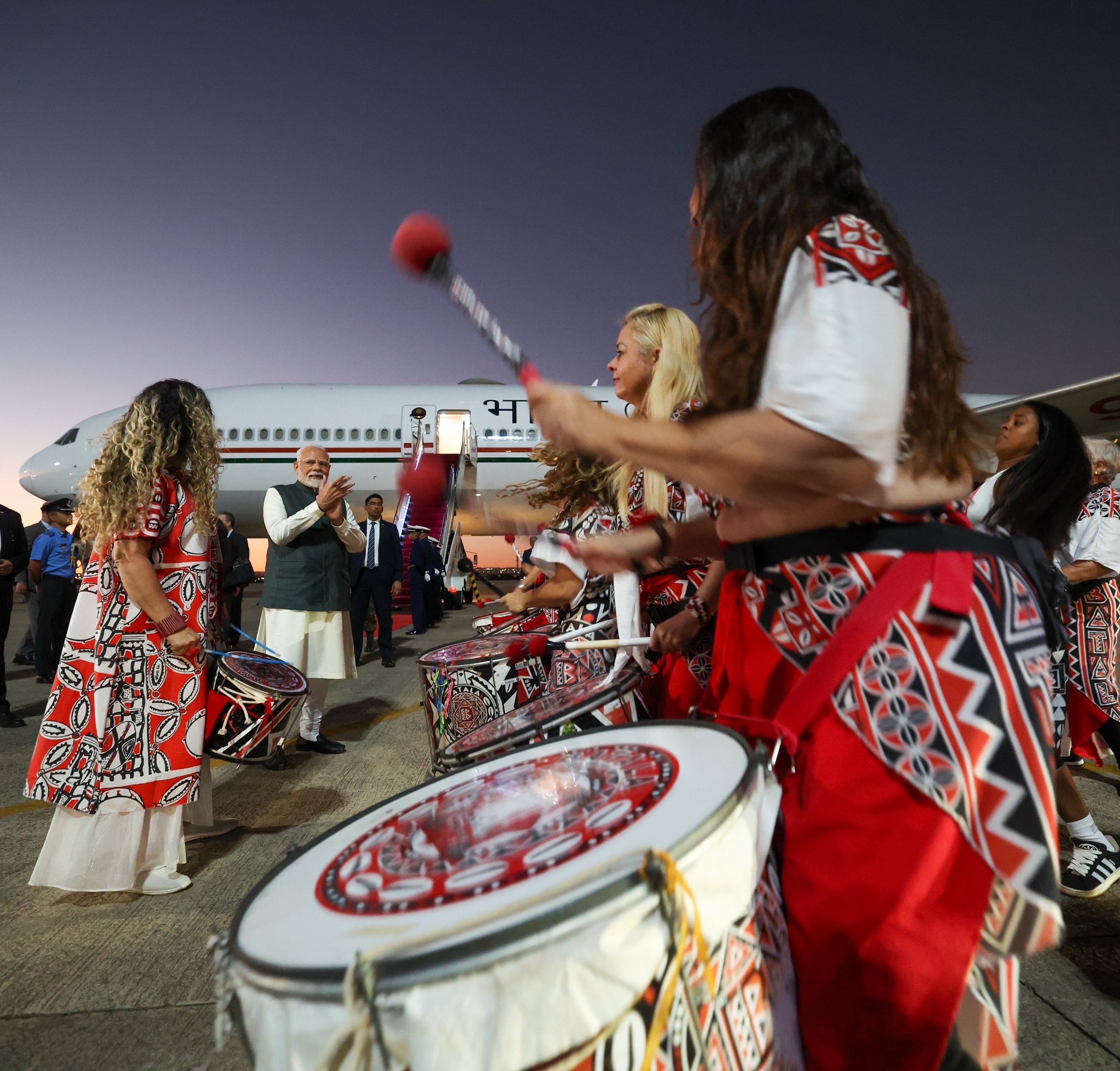Indian PM Modi Embarks on Strategic Foreign Tour, Opposition Turns Up the Heat at Home Over VP Exit, J&K Statehood
Even as Indian Prime Minister Narendra Modi departed for a high-profile diplomatic visit to the United Kingdom and the Maldives on Tuesday, domestic politics in India entered a turbulent phase.
The sudden resignation of Vice President Jagdeep Dhankhar, combined with escalating demands from the Opposition over Jammu and Kashmir’s statehood, has created a charged atmosphere in the Monsoon Session of Parliament—drawing intense scrutiny of the Modi government’s internal handling of key constitutional and security matters.
 |
| Image Source: PM NaMo |
In a formal departure statement released by the Prime Minister’s Office, the Prime Minister emphasised the importance of the UK and Maldives visits, underscoring the need to strengthen bilateral ties in trade, defence, technology, and maritime security.
“I am confident the visit will yield tangible outcomes, benefiting our people and advancing our Neighbourhood First Policy,” he noted, ahead of scheduled meetings with UK Prime Minister Sir Keir Starmer and Maldives President Mohamed Muizzu.
However, as Modi touches down in London for his fourth official UK visit, the heat is rising back home.
The Opposition, led by Congress President Mallikarjun Kharge and senior leaders of the INDIA alliance, has sharpened its offensive over two flashpoints: the Modi government’s unfulfilled promise to restore full statehood to Jammu & Kashmir, and the unexpected resignation of Vice President Dhankhar—whose exit they claim reveals deeper institutional fractures.
PM @narendramodi embarks on a visit to United Kingdom and Maldives. pic.twitter.com/qU0ORSDkkd
— PMO India (@PMOIndia) July 23, 2025
Though Modi’s diplomatic engagement comes at a strategically significant time--especially in the context of India’s global aspirations--it coincides with growing domestic pressure to uphold democratic commitments.
With the VP’s resignation sparking fresh questions about government accountability and ministerial conduct, the Opposition is framing the situation not as a matter of political disruption, but democratic insistence.
Congress General Secretary Jairam Ramesh described Dhankhar’s exit as “far more than a health issue,” pointing to the unexplained absence of Union Ministers J.P. Nadda and Kiren Rijiju from a scheduled Business Advisory Committee meeting, hours before Dhankhar stepped down.
While the government maintains silence, the timing has further energized the Opposition’s call for answers—not just about the VP’s departure, but about the state of Parliament itself.
Adding to the unease is the unresolved question of Jammu & Kashmir’s statehood. Nearly a year after Assembly elections were conducted under Supreme Court directives, the Modi government has yet to introduce a bill or timeline for restoring full statehood to the region--despite repeated assurances made in Parliament and to the judiciary.
The Congress party has launched a national campaign titled ‘Hamari Riyasat, Hamara Haq’, holding protests from Srinagar to Jantar Mantar.
On July 19, the Congress' Srinagar office was reportedly sealed off by security forces. Two days later, party leaders were barricaded during protests in Jammu.
Congress leaders say this crackdown represents a deeper pattern of “democratic backsliding” and betrayal of constitutional promises.
The postponed debate on Operation Sindoor, which was to address the April 22 terror attack in Pahalgam, has only intensified criticism. The INDIA bloc has accused the government of placing optics over accountability—suggesting that Parliament’s agenda is being reshaped to avoid direct Prime Ministerial scrutiny.
“Diplomacy is important, but democracy must not be sidelined,” said K.C. Venugopal, Congress General Secretary (Organisation). “While the Prime Minister engages globally, he must not ignore the serious issues his government faces at home--on governance, accountability, and justice for Jammu & Kashmir.”
Opposition leaders maintain that their push is not about disrupting Parliament, but defending it. “Restoration of J&K’s statehood, answering for Pahalgam, and respecting constitutional offices like the Vice President--these are not party demands. They are democratic imperatives,” Congress President Mallikarjun Kharge said.
The coming days are likely to see further escalation. Parliament will reconvene after Independence Day, and the INDIA bloc has promised to raise these issues “with full force.”
Meanwhile, Prime Minister Modi is expected to return to a session overshadowed by scrutiny, not just from the Opposition benches, but from a visibly restless nation.
For now, India walks two tightropes--one abroad, strengthening strategic partnerships, and one at home, where the foundations of democratic promise are being tested in real time.
